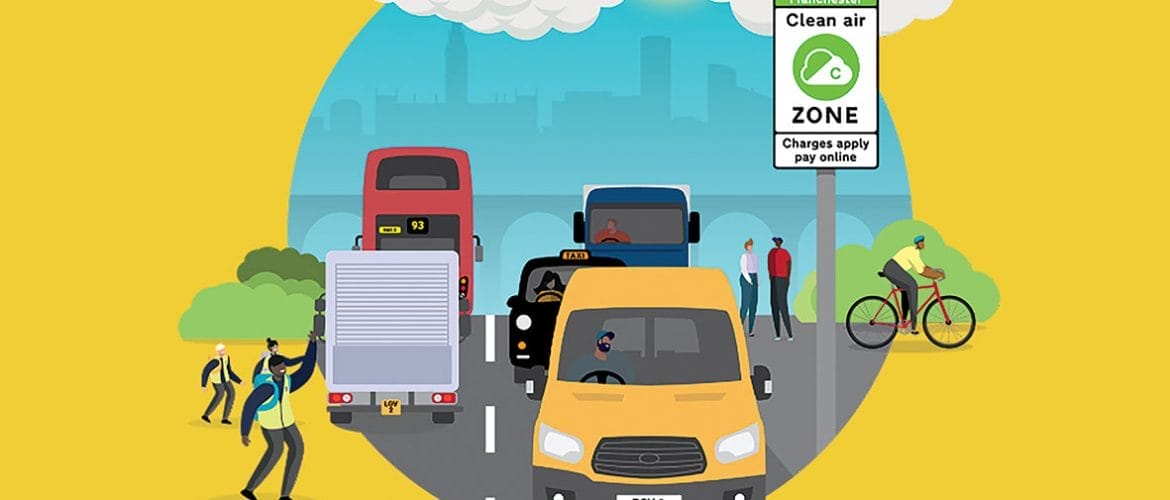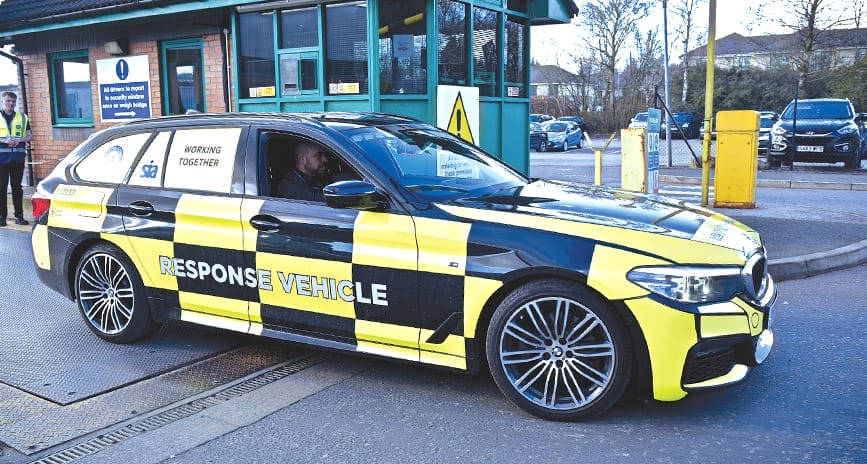Proposed daily charges
The following daily charges were proposed for non-compliant commercial vehicles during public consultation:
- Buses, coaches and Heavy Good Vehicles (HGV) – £60 (from spring 2022).
- Taxis and private hire vehicles – £7.50 (from spring 2022).
- Light Goods Vehicles (LGV) such as vans and minibuses – £10 (temporary exemption until 2023). If the daily charge for a non-compliant vehicle isn’t paid, a Penalty Charge Notice (PCN) of £120 would be issued, in addition to the unpaid daily charge. This would be reduced to £60 if paid within 14 days.
- Work under way to assess and understand public consultation responses and impacts of COVID-19 on Clean Air Zone proposals and funding support packages.
- Final Greater Manchester Clean Air Plan to be put forward to decision makers as soon as possible and by summer 2021 at latest.
- Securing right level of government funding “absolutely critical” to support local businesses and organisations before the government-mandated Clean Air Zone is introduced.
Greater Manchester Combined Authority (GMCA) has now received an update on the next steps to produce the final GM Clean Air Plan at its meeting on Friday 29 January. A report confirms that the final plan – including proposals for a GM-wide charging Clean Air Zone – will be put before Greater Manchester councils as soon as possible, and by summer 2021. The ten GM local authorities are under direction from government to introduce a category C charging Clean Air Zone – including commercial and passenger vehicles but not private vehicles – to secure compliance with nitrogen dioxide (NO2) standards on local roads in the shortest possible time, and by 2024 at the latest.
As government minister Rebecca Pow explained late last year, “Only the most polluting older vehicles are charged in a Clean Air Zone, and it is not a congestion charge”. During an 8-week-long public consultation between 8 October and 3 December 2020, 4,765 responses were received from businesses, organisations and the general public. Feedback was given on key elements such as the proposed Clean Air Zone boundary, daily charges for affected vehicles, and how COVID-19 has affected businesses in Greater Manchester. The consultation also sought feedback on a proposed £150m government funding support package to help local people and businesses upgrade to cleaner, compliant vehicles that do not incur a daily charge, before the Zone is introduced. This will be essential to support impacted vehicle owners to upgrade, while facing the economic impact of the pandemic. It includes a Hardship Fund, for those most in need. Government has committed £41m so far to the programme. At the same time, a consultation was held on the closely linked Minimum Licensing Standards (MLS) for taxi and private hire services. An independent research agency is now working to analyse and report the information gathered from the two consultations to help local authority decision makers make a fully informed decision on the final plans.
Further work is also taking place to understand the economic impact of COVID-19 on traders and businesses whose current business vehicles would not meet the mandated standards that the Clean Air Plan must enforce. Greater Manchester’s Green City-Region Lead, Councillor Andrew Western, said: “Poor air quality affects us all but particularly the most vulnerable members of our society, and we must act to clean up the air we all breathe. Government asked us to continue to progress the Clean Air Zone proposals developed before the COVID-19 pandemic, and I’d like to thank everyone for the crucial feedback given during the consultation. We did see brief, short term improvements in air quality due to the pandemic, but as the economy opened again in the second half of 2020, road traffic levels grew quickly, almost reaching pre-pandemic levels by late 2020. Coupled with this, the economic uncertainty led to a significant reduction in the purchase of newer, cleaner vehicles.
“We recognise the importance of understanding what impact the pandemic has had on our air quality and businesses, so that these are reflected in the final plans. In particular, we want to ensure that the best possible funding support is in place to help vehicle owners to make the change. It’s a very uncertain time for a lot of people, and getting the right level of funding to support local businesses and organisations before the Clean Air Zone is introduced is absolutely critical.”




